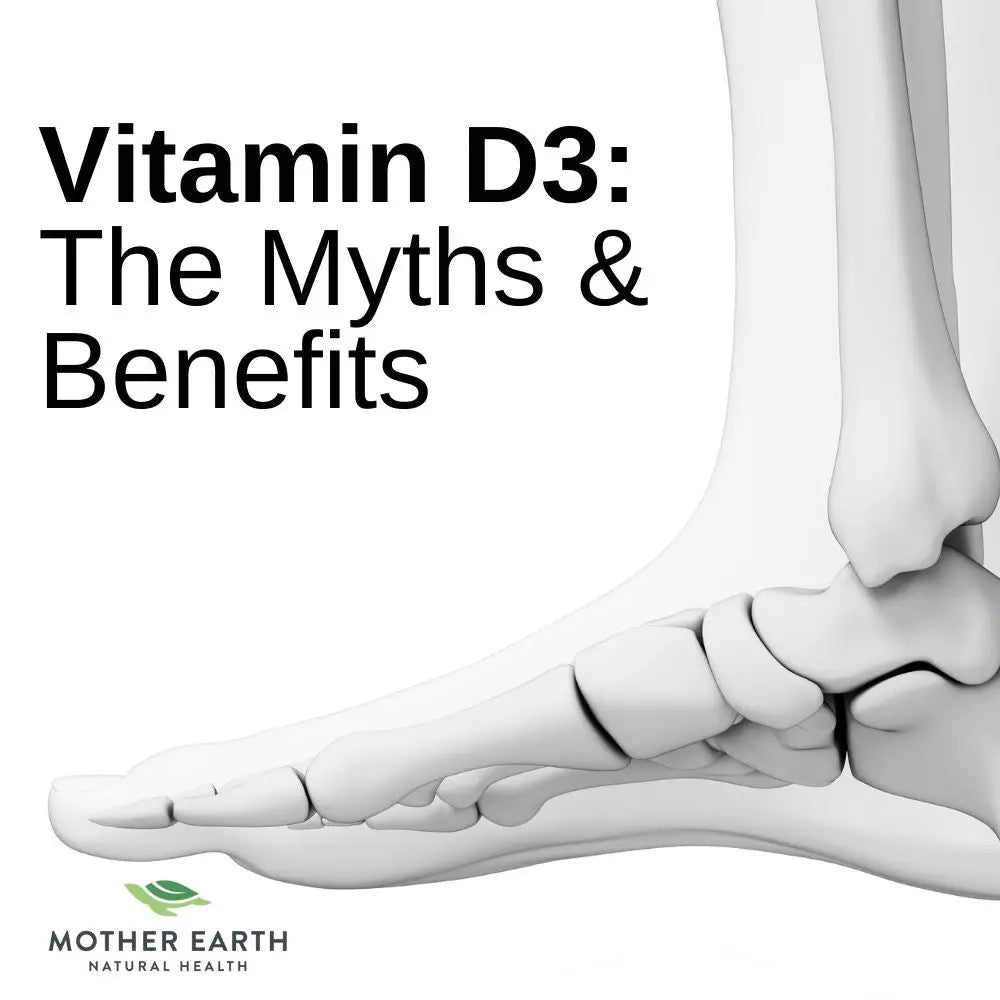Introduction to Vitamin D3
Vitamin D3, also known as the "sunshine vitamin", plays a crucial role in our overall health. It is a fat-soluble vitamin that is produced in the skin when exposed to sunlight. However, many people are unaware of the importance of Vitamin D3 and its impact on various aspects of our well-being. In this article, we will delve into the untold story of Vitamin D3, uncovering its benefits and dispelling common myths surrounding it.
The Importance of Vitamin D3 for Overall Health
Vitamin D3 is essential for maintaining healthy bones and teeth. It helps the body absorb calcium and phosphorus, which are vital for bone mineralization. This makes Vitamin D3 crucial in preventing conditions such as osteoporosis and rickets, especially in growing children and the elderly.
In addition to its role in bone health, Vitamin D3 also plays a significant role in immune function. It helps regulate the immune system and enhances its ability to fight off infections and diseases. Studies have shown that individuals with sufficient Vitamin D3 levels have a lower risk of developing respiratory tract infections, such as the common cold and influenza.
The Sources of Vitamin D3

The primary source of Vitamin D3 is sunlight. When our skin is exposed to UVB rays from the sun, it triggers the synthesis of Vitamin D3. However, factors such as geographic location, time of year, and skin pigmentation can affect the amount of Vitamin D3 produced. For those living in northern latitudes or areas with limited sunlight, it may be challenging to get enough Vitamin D3 solely from the sun.
Fortunately, there are dietary sources of Vitamin D3 as well. Fatty fish, such as salmon and mackerel, are excellent sources of this vitamin. Additionally, fortified foods like milk, orange juice, and cereals can provide a significant amount of Vitamin D3. However, it is important to note that it may be difficult to meet the recommended daily intake of Vitamin D3 through diet alone.
Common Myths and Misconceptions about Vitamin D3

There are several myths and misconceptions surrounding Vitamin D3. One common myth is that spending a few minutes in the sun each day is enough to meet our Vitamin D3 needs. While sunlight exposure is essential, the amount of time needed varies depending on factors such as skin type, time of day, and geographical location. It is recommended to consult with a healthcare professional to determine the appropriate sun exposure for optimal Vitamin D3 production.
Another myth is that taking excessive amounts of Vitamin D3 is harmless. In reality, excessive intake of Vitamin D3 can lead to toxicity, known as hypervitaminosis D. This can result in symptoms such as nausea, vomiting, weakness, and even kidney damage. It is crucial to follow the recommended daily intake guidelines and consult with a healthcare professional before starting any Vitamin D3 supplementation.
The Benefits of Vitamin D3 for Bone Health
Vitamin D3 plays a vital role in maintaining strong and healthy bones. It helps the body absorb calcium and phosphorus from the diet, which are necessary for bone mineralization. Adequate Vitamin D3 levels can prevent conditions such as osteoporosis and rickets, which weaken bones and increase the risk of fractures.
In addition to its role in bone health, Vitamin D3 has been linked to a reduced risk of certain types of cancer, including colorectal, breast, and prostate cancer. While more research is needed to fully understand the relationship between Vitamin D3 and cancer prevention, preliminary studies suggest a potential protective effect.
Vitamin D3 and Its Role in Immune Function
Vitamin D3 is essential for a properly functioning immune system. It helps regulate the immune response by modulating the activity of immune cells, such as T cells and macrophages. This allows the immune system to effectively respond to infections and diseases.
Several studies have shown that individuals with low Vitamin D3 levels are more susceptible to respiratory tract infections. Vitamin D3 supplementation has been found to reduce the risk of respiratory infections, particularly in those with deficient levels. However, it is important to note that while Vitamin D3 can support immune function, it is not a cure-all and should be complemented with other healthy lifestyle practices.
Vitamin D3 and Its Connection to Mental Health

Emerging research suggests a potential link between Vitamin D3 and mental health. Low levels of Vitamin D3 have been associated with an increased risk of depression and other mood disorders. It is believed that Vitamin D3 plays a role in the synthesis of serotonin, a neurotransmitter that regulates mood.
While the exact mechanisms are still being studied, maintaining optimal Vitamin D3 levels may be beneficial for mental well-being. However, it is important to note that Vitamin D3 supplementation alone is not a substitute for professional mental health treatment. If you are experiencing symptoms of depression or other mental health conditions, it is crucial to seek guidance from a healthcare professional.
How to Ensure You Are Getting Enough Vitamin D3
To ensure you are getting enough Vitamin D3, it is important to consider both sunlight exposure and dietary sources. Spending time outdoors and getting sunlight on your skin, especially during peak hours, can help stimulate Vitamin D3 production. However, it is crucial to balance sun exposure with sun safety measures, such as wearing sunscreen and protective clothing.
In terms of diet, incorporating Vitamin D3-rich foods into your meals can help boost your intake. Fatty fish like salmon and mackerel, fortified dairy products, and egg yolks are all excellent sources of Vitamin D3. If you have difficulty meeting the recommended daily intake through sunlight and diet alone, supplementation may be necessary. It is advisable to consult with a healthcare professional to determine the appropriate dosage for your individual needs.
Vitamin D3 Supplements: What You Need to Know
Vitamin D3 supplements are widely available and can be an effective way to ensure adequate levels of this essential vitamin. When choosing a Vitamin D3 supplement, it is important to opt for a reputable brand that undergoes third-party testing to ensure quality and purity. Look for supplements that contain cholecalciferol, the active form of Vitamin D3.
It is also important to note that the recommended dosage of Vitamin D3 may vary depending on factors such as age, sex, and overall health. A healthcare professional can help determine the appropriate dosage for your specific needs. Additionally, regular monitoring of Vitamin D3 levels through blood tests can help ensure that you are maintaining optimal levels.
Conclusion: The Untold Story of Vitamin D3
In conclusion, Vitamin D3 is a vital nutrient that plays a significant role in maintaining overall health. It is essential for bone health, immune function, and potentially mental well-being. While sunlight is the primary source of Vitamin D3, dietary sources and supplementation may be necessary to meet the recommended daily intake.
Dispelling common myths and misconceptions surrounding Vitamin D3 is crucial for understanding its true benefits. It is important to consult with a healthcare professional to determine the appropriate sun exposure, dietary intake, and supplementation for your individual needs. By incorporating Vitamin D3 into your daily routine, you can unlock its untold benefits and support your overall well-being.
CTA: Consult with a healthcare professional to determine your Vitamin D3 needs and ensure you are maintaining optimal levels for your overall health and well-being.

